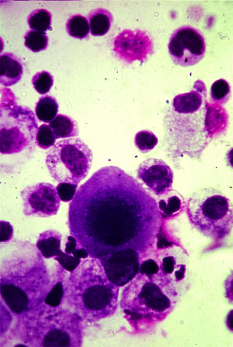US funds local cancer probe
 The US Department of Defense (DoD) is investing in Australian upper gastrointestinal cancer research.
The US Department of Defense (DoD) is investing in Australian upper gastrointestinal cancer research.
Researchers from Melbourne’s Hudson Institute of Medical Research have received two grants from the US DoD totalling approximately AU$2 million, to research stomach cancer and pancreatic cancer.
In both projects, researchers are aiming to establish how risk factors interact with genes of the immune system in some people to cause stomach and pancreatic cancers.
Lead researcher Professor Brendan Jenkins says upper gastrointestinal cancers are among the most common and deadly cancers in the world.
“The DoD has identified stomach cancer as a high risk for military veterans, particularly those of African-American, Hispanic and Asian ethnicities, and the five-year survival rate for stomach cancer is still less than 30 percent,” said Prof Jenkins.
“The research being done here provides a golden opportunity to improve that situation – meaning a better life for military veterans and lower health care costs for the US government.
“It’s a similar story for pancreatic cancer, with a 5-year survival rate of just 9-10 per cent, largely due to late detection and limited efficacy of chemotherapy, so we’re also focussing on that disease,” he said.
“We know that the most common type of pancreatic cancer contains gut-derived bacteria that promote tumour growth and can cause resistance to chemotherapy; what we need to establish is how that process works.”
Identifying this process is the first major step towards designing new treatments and cures.
With stomach cancer, researchers know that US military veterans have higher exposure to risk factors such as infection with the gastric bacteria H. pylori, as well as exposure to biomass, tobacco smoke and ionising radiation, plus excessive alcohol consumption.
Taken together, these two projects aim to advance understanding of all cancers, not just those affecting the stomach and pancreas, and hopefully lead to faster diagnosis and better treatment.








 Print
Print